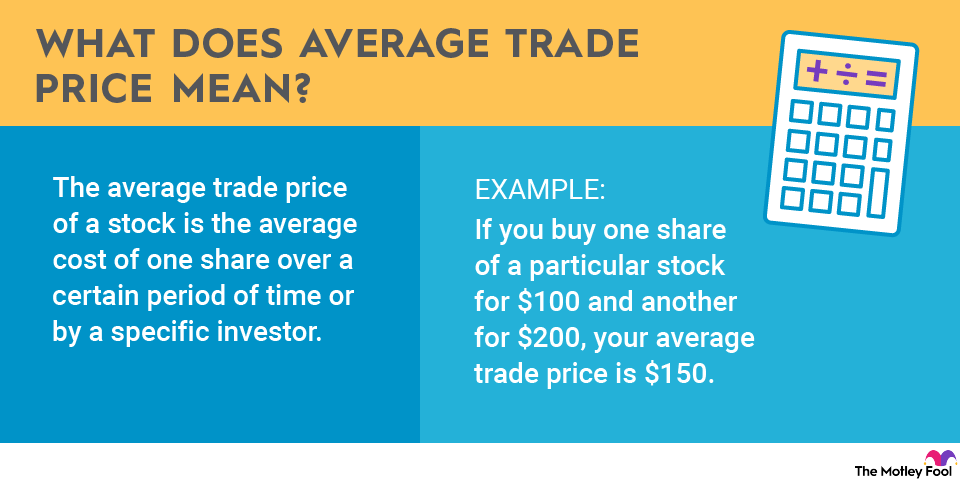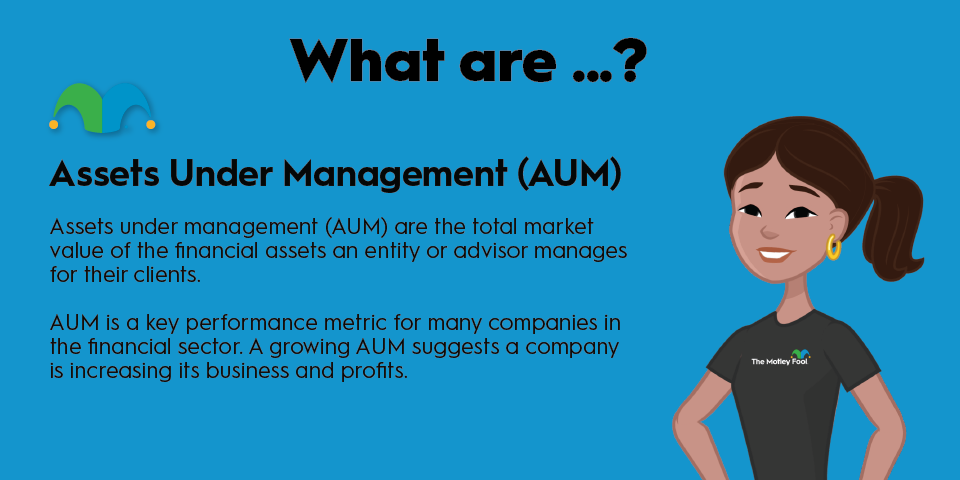The average trade price of a stock is the average cost of one share over a certain period of time or by a specific investor. As a basic example, if you buy one share of a particular stock for $100 and another for $200, your average trade price is $150.
Of course, real-world uses for average trade price aren’t usually that simple. So, here’s a rundown of when average trade price is used, how to calculate it, and an example of how you can use it in your own portfolio.

Applications of average trade price
There are two main scenarios where you’re likely to encounter the concept of average trade price.
Average price all investors have paid: What buyers have paid for a stock over a specific period of time, such as a day. This takes into account all of the trades made and averages them.
Average price you paid for a stock: You can use the same principle to determine the average price you paid for a stock, which can be helpful to know for several reasons, including tracking your overall investment performance or calculating how much capital gains tax you might have to pay if you sell.
There are other potential applications for average trade price, but these are the two main uses. In the next section, we’ll take a look at the math behind this.
How average trade price works
Average trade price is also known as the volume-weighted average price (VWAP), especially when referring to the average price paid by all traders in a specific period of time. However you want to use average trade price, the basic idea is the same. You take a weighted average of all of the trades in your data set.
A simple average involves taking a group of numbers, adding them together, and dividing by however many numbers there are. This is a relatively elementary concept in math.
A weighted average is used when different numbers have different weights assigned to them. Your grade point average (GPA) in college is a form of a weighted average; for example, a four-credit course carries more weight than a three-credit course.
Similarly, when calculating average trade price, you need to account for the number of shares purchased in each transaction. Think of it this way -- if you buy 100 shares of stock at $10 and 25 shares at $20, you can’t simply take the average of $10 and $20 and say $15 is your average trade price. You bought most of your shares at the lower price, and that needs to be taken into account.
With that in mind, here’s a quick three-step formula for calculating a weighted average for average trade price:
- Multiply each share price by the number of shares bought.
- Add the results of the first step together.
- Divide by the total number of shares bought.
Related investing topics
An example of calculating average trade price
Obviously, if you’re trying to find the average trade price for a particular stock over a period of time, the calculation can be far too complex to do by hand. Many stocks trade millions of shares a day among thousands of investors, and their prices can be volatile. But for situations like determining your average cost basis in a stock, the calculation is fairly straightforward.
Consider the following situation. Let’s say that you own 300 shares of Apple stock, but you didn’t buy them all at the same time. You accumulated the position by purchasing 100 shares at a time at three different points in your investing career. The prices you paid were:
- 100 shares for $50 per share
- 100 shares for $80 per share
- 100 shares for $115 per share
You want to calculate the average trade price of your Apple investment. So, you would use the weighted average formula in the previous section. First, you’d multiply each share count by the respective price paid, like so:
- 100 shares x $50 = $5,000
- 100 shares x $80 = $8,000
- 100 shares x $115 = $11,500
That’s step one. Step two is adding these three results together, which gives us $24,500. Finally, dividing this amount by the total number of shares (300) gives an average trade price of $81.67.


















